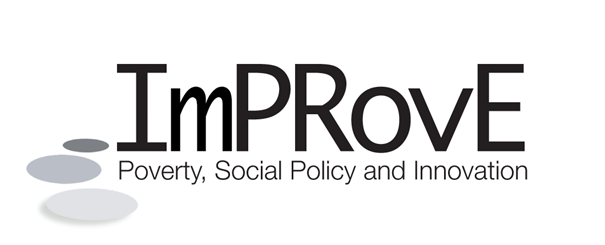The aim of this WP is to develop a comparative and transdisciplinary methodology for the assessment of the governance of socially innovative policies and actions in WP 11. In order to cover a wide variety of ‘societal contexts’ a matrix cross-tabulating two typologies will be made: a typology of welfare regimes and a typology of scalar regimes.
The transdisciplinary methodology works through mutual learning partnerships between researchers and a diverse group of stakeholders in order to simultaneously innovate the governance of knowledge and policy-making to combat poverty. They are based on a plural vision of knowledge admitting that the formal border between ‘official’ knowledge producers (universities, R&D centres) and citizens obstructs society from getting access to scientific knowledge and hinders science from learning from experience-based knowledge (Bucchi 2004; Carrada 2006; Cheng 2008; European Commission 2007; Irwin and Wynne, 1996; Stilgoe, 2006; Wilsdon and Willis, 2004). Stakeholders will be involved in identifying, suggesting and discussing criteria for effectiveness in social innovation and assessing socially innovative policies and actions, thus engaging in mutual learning among themselves and with the research community.
Finally, this WP will analyse how the poverty indicators and risk groups identified in WP 1 can feed into the selection and assessment of socially innovative policies and actions. This will be done by organising a workshop on the current possibilities and limits of providing more indicators on social exclusion and poverty on sub-national scale and an internal discussion on how socio-economic profiles of risk groups can be used to assist the assessment of socially innovative policies and actions in WP 11.
| Title | ||
|---|---|---|
|
D.14.1 How to study social innovation in poverty analysis. Methods and methodologies |
1 MB | Download |

